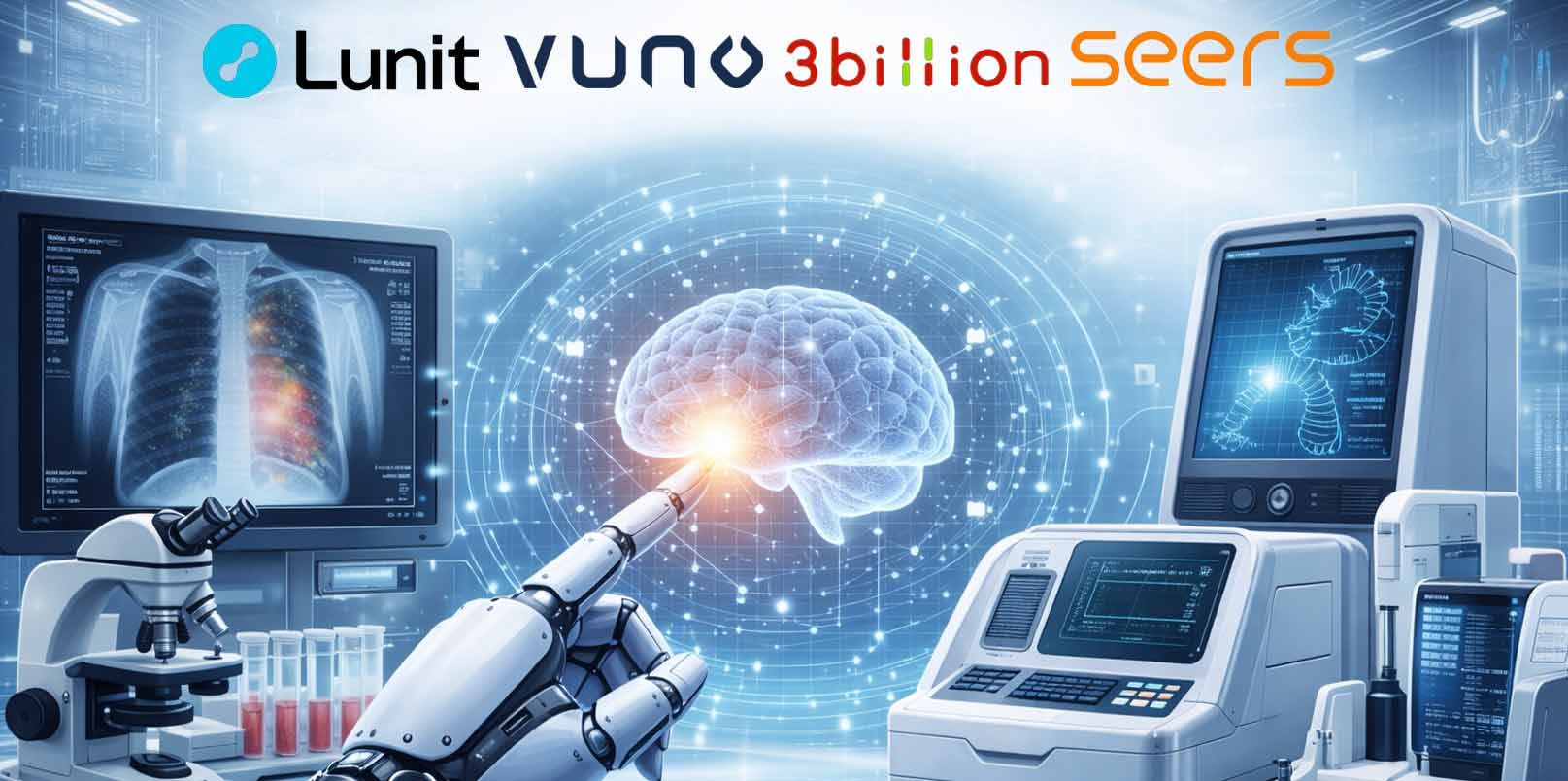Korean MedTech startup VUNO solidifies its position in the AI in Medical sector as it gets approval from the Ministry of Food and Drug Safety for its AI-based cardiac arrest prediction medical device – VUNO Med®–DeepCARS. VUNO Med DeepCARS™ provides a risk of cardiac arrest based on four vital signs: blood pressure (diastolic, systolic), pulse, respiration, and body temperature collected from electronic medical records (EMR) of hospitalized patients in general wards.
VUNO Med®–DeepCARS™ predicts Cardiac Arrest
VUNO Med®–DeepCARS™,has proven its excellent predictive performance of cardiac arrest through mentions in a number of academic journals such as the Journal of the American Heart Association (JAHA) and the World Journal of Critical Care (CCM), including ‘Resuscitation’, as well as clinical trials conducted at Asan Medical Center in Seoul.
VUNO Med’s DeepCARS™ had been designated as an Innovative Medical Device by the Ministry of Food and Drug Safety (MFDS) in 2020. Hyun-Jun Kim, CEO of VUNO, said, “VUNO Med®–DeepCARS™ makes predictions about cardiac arrest based on a variety of vital signs to allow for early detection and swift response. Obviously, this epoch-making solution will serve as a game-changer once it comes into clinical use.” He added, “VUNO is dedicated to pioneer groundbreaking AI-based solutions across various medical fields from deep learning-based solutions using medical images to technologies regarding vital signs.”
VUNO’s solution helps medical staff recognize the risk of cardiac arrest in patients in advance and take appropriate measures. In general wards, it is difficult to continuously monitor patients compared to intensive care units, so realistic limitations have been pointed out in responding to severely exacerbated patients. In particular, in-hospital cardiac arrest, which has a high mortality rate of 75%, occurs at 5.17 cases per 1,000 hospitalizations based on tertiary general hospitals, which calls for improvement of the domestic inpatient monitoring system.
VUNO Med®–DeepCARS™ has the advantage that it can be used in various clinical environments in the future due to its high versatility using only essential vital signs that are generally measured in hospitalized patients. Yeha Lee, Chairman of VUNO’s Board of Directors, said, “VUNO Med®–DeepCARS™ is a groundbreaking AI medical device for predicting cardiac arrest that has proven clinical effectiveness in clinical studies conducted with various medical institutions. I will contribute to saving the lives of many patients,” he said. In addition, he added, “With this approval of VUNO Med®–DeepCARS™, we will expand the application of biosignal-based AI technology with high growth potential at home and abroad.”
According to a research paper published in Critical Care Medicine (CCM) in February 2020, VUNO Med®–DeepCARS™ had a level of sensitivity twice as high as Modified Early Warning Score (MEWS) – a conventional way of cardiac arrest prediction – for the same number of alarms. Added to this, VUNO Med®–DeepCARS™ showed a decrease of 59.6% in the total number of alarms for the same level of sensitivity, thus proving a low false alarm rate. Thus, expectations are growing that the implementation of VUNO Med®–DeepCARS™ at the forefront of medical care will lessen medical professionals’ fatigue from false alarms and help prevent cardiac arrest among inpatients by making considerably accurate predictions.
Also Read,
- Korean startup Nemesis Co, Ltd. developing SoC for biomedical devices
- Korean company Carima contributes to fighting COVID-19 with 3D Printing of NP swabs & face shields
- Korean Medical AI startup Lunit secures $26 million funding for global expansion
- AIRS Medical: Set to revolutionise the Global Medical AI field






